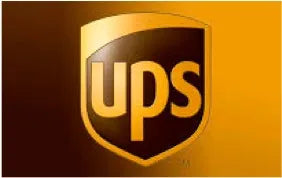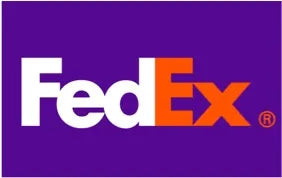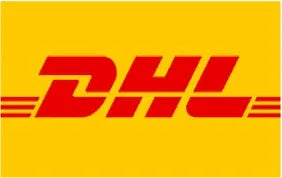In today's digital age, online shopping has become increasingly popular, especially in the realm of wholesale purchasing. However, along with the convenience comes the risk of encountering scams and fraudulent factories. It is crucial for businesses and individuals to be aware of these risks and take preventive measures to protect themselves. In this blog post, we will explore various strategies and precautions that can help you avoid scams and fraudulent wholesale factories online.
Table of Contents:
I、Understanding the Risks of Online Wholesale Purchasing
II、Researching Wholesale factories
III、Secure Payment Methods and Escrow Services
IV、Beware of Unbelievable Offers and Unrealistic Pricing
V、Requesting Samples and Conducting Due Diligence
VI、Establishing Communication Channels
VII、Protecting Personal and Financial Information
VIII、Recognizing Red Flags and Warning Signs
IX、Conclusion: Safeguarding Your Wholesale Purchasing Experience
I、Understanding the Risks of Online Wholesale Purchasing
Online wholesale purchasing offers convenience and accessibility to a vast array of products from all over the world. However, it also exposes buyers to certain risks, primarily the presence of scams and fraudulent factories. It is essential to understand these risks in order to navigate the online wholesale marketplace safely. Let's explore some of the key risks associated with online wholesale purchasing:
Counterfeit Products: One of the significant risks in online wholesale purchasing is the prevalence of counterfeit products. Unscrupulous factories may advertise branded or high-quality goods at significantly lower prices, only to deliver counterfeit or substandard items. This not only results in financial loss but also damages the reputation of businesses selling such products.
Non-Delivery or Delayed Shipment: Another risk is the non-delivery or delayed shipment of goods. Fraudulent factories may accept payment for orders but fail to deliver the products, leaving buyers in a frustrating and potentially costly situation. Alternatively, they might intentionally delay shipments, causing significant disruptions to business operations.
Poor Product Quality: Online wholesale purchasing entails a certain level of risk when it comes to product quality. Without physically inspecting the products beforehand, buyers rely solely on the factory's descriptions and images. Dishonest factories may misrepresent the quality of their products, leading to dissatisfaction and financial loss.
Payment Fraud: Online transactions involve the exchange of sensitive financial information, making buyers susceptible to payment fraud. Scammers may deceive buyers by offering fake payment gateways or manipulating payment processes to gain access to credit card details, bank account information, or personal identification.
Data Breaches and Information Security: Sharing personal and business information with online wholesale factories exposes buyers to the risk of data breaches and compromised information security. Malicious actors may target insecure websites or exploit vulnerabilities in the factory's system to gain unauthorized access to sensitive data.
Unreliable factories: In the online wholesale marketplace, it is not uncommon to encounter factories who are unreliable or untrustworthy. They may exhibit poor customer service, inconsistent communication, or fail to meet agreed-upon terms and conditions. Such factories can disrupt business operations and cause financial loss.
It is crucial to be aware of these risks and take proactive measures to mitigate them. By understanding the potential dangers associated with online wholesale purchasing, buyers can make informed decisions and implement strategies to protect themselves from scams and fraudulent factories. The subsequent sections of this blog will delve into specific strategies and precautions that can help safeguard against these risks, ensuring a secure and successful wholesale purchasing experience online.
II、Researching Wholesale factories
When engaging in online wholesale purchasing, thorough research is vital to ensure that you are dealing with legitimate and trustworthy factories. Taking the time to evaluate potential factories can help you avoid scams and fraudulent activities. Here are some key steps to consider when researching wholesale factories:
Verifying Business Legitimacy:
Start by verifying the legitimacy of the wholesale factory. Look for essential details such as business name, address, and contact information on their website. Conduct a search to confirm the accuracy of this information and check if the factory is registered and licensed in their respective jurisdiction. Legitimate factories will typically provide transparent and verifiable information about their company.
Checking Online Reputation and Reviews:
Research the reputation of the wholesale factory by searching for reviews and feedback from previous customers. Look for testimonials on their website, social media platforms, or reputable review websites. Pay attention to both positive and negative reviews, as they can provide insights into the factory's reliability, product quality, and customer service. Multiple negative reviews or a lack of online presence may raise red flags.
Evaluating Customer Support:
Assess the factory's customer support capabilities. Contact them with inquiries or concerns to gauge their responsiveness and professionalism. Prompt and helpful responses indicate a reliable factory, while delayed or unhelpful communication may suggest a lack of commitment to customer satisfaction. Consider how well they address your questions and whether they provide detailed information about their products and services.
Secure Payment Methods and Escrow Services:
Ensure that the wholesale factory offers secure payment methods to protect your financial transactions. Look for trusted payment gateways, such as PayPal or credit card processors that provide buyer protection mechanisms. Additionally, consider using escrow services, where a neutral third party holds the funds until both parties fulfill their obligations. This can add an extra layer of security and confidence in the transaction.
Beware of Unbelievable Offers and Unrealistic Pricing:
Exercise caution when encountering wholesale factories offering unusually low prices or incredible deals. If an offer seems too good to be true, it often is. Unrealistic pricing may indicate counterfeit products or scams. Compare the prices with market averages to get an idea of reasonable rates. Reliable factories typically offer competitive prices without compromising on quality.
Requesting Samples and Conducting Due Diligence:
Before committing to a wholesale factory, request product samples to evaluate their quality and authenticity. Examine the samples closely and assess their durability, functionality, and overall quality. Additionally, conduct due diligence by researching the market value of the products, comparing prices from multiple factories, and verifying the authenticity of any branded goods.
Establishing Communication Channels:
Establish clear communication channels with the wholesale factory. Reliable factories should provide multiple means of contact, such as email, phone, or live chat. Avoid factories who solely communicate through messaging platforms or social media platforms, as these can be more prone to scams or lack of professionalism.
Phone and Email Communication:
Communicating via phone or email allows for more direct and traceable communication. It enables you to establish a personal connection with the factory and have a record of your conversations, which can be valuable if any disputes or issues arise in the future.
Avoiding Suspicious Messaging Platforms:
Be cautious when dealing with factories who solely communicate through messaging apps or social media platforms. These platforms may lack security measures, and scammers can easily create fake profiles. Genuine factories usually have a professional website and dedicated business email addresses.
Thoroughly researching wholesale factories is crucial to ensure that you are partnering with reputable and trustworthy businesses. By verifying their legitimacy, checking their online reputation, evaluating customer support, and establishing secure communication channels, you can significantly reduce the risks associated with scams and fraudulent activities.
III、Secure Payment Methods and Escrow Services
When engaging in online wholesale purchasing, ensuring secure payment methods is essential to protect yourself from scams and fraudulent factories. Here are some key considerations for secure payment methods and the use of escrow services:
Trusted Payment Gateways: Use reputable and well-established payment gateways that offer robust security measures. Look for options such as PayPal, Stripe, or other widely recognized payment processors. These platforms often employ encryption and fraud prevention measures to safeguard your financial information.
Credit Card Protection: Credit cards offer an added layer of protection when making online payments. They often have fraud protection policies in place that can help recover funds in case of fraudulent transactions. Check with your credit card provider about their specific safeguards and policies.
Secure Socket Layer (SSL) Encryption: Ensure that the website or online platform where you are making payments has SSL encryption enabled. You can identify this by looking for the padlock icon in the website's URL bar. SSL encryption protects your sensitive data during transmission, making it more difficult for hackers to intercept and exploit your information.
Two-Factor Authentication (2FA): Enable two-factor authentication whenever possible. This adds an extra layer of security by requiring you to verify your identity through a secondary method, such as a unique code sent to your mobile device, in addition to your login credentials.
Virtual Credit Cards: Consider using virtual credit cards for online transactions. These are temporary, single-use credit card numbers that can be generated specifically for a particular transaction. Virtual credit cards help minimize the risk of your actual credit card information being compromised.
Escrow Services: Utilize escrow services for high-value transactions or when dealing with unfamiliar factories. Escrow acts as a neutral third party that holds the funds until both parties fulfill their obligations. This ensures that the factory delivers the agreed-upon products, and you, as the buyer, release the payment only when satisfied with the received goods.
Payment Verification: Before making any payment, verify the factory's credentials and legitimacy. Confirm their business information, such as their registered address and contact details. Cross-reference this information with trusted business directories or government databases to ensure their authenticity.
Escrow Fraud Prevention: When using an escrow service, exercise caution and conduct due diligence. Research the escrow service provider to ensure they are reputable and have a history of secure transactions. Be wary of escrow services recommended by the factory, as they could be collaborating in a scam. Always initiate the use of an escrow service independently.
Remember, secure payment methods and the use of escrow services provide an additional layer of protection when engaging in online wholesale transactions. By implementing these measures, you can minimize the risk of falling victim to scams and fraudulent factories, and ensure a secure and trustworthy wholesale purchasing experience.
IV、Beware of Unbelievable Offers and Unrealistic Pricing
When engaging in online wholesale purchasing, it is important to be cautious of unbelievable offers and unrealistic pricing. While everyone loves a good deal, it is essential to exercise skepticism and evaluate offers carefully. Here are some key points to consider:
Too Good to Be True: If an offer seems too good to be true, it probably is. Unrealistically low prices can be an indication of counterfeit or substandard products. Fraudulent factories may lure buyers with incredibly low prices to attract a large customer base and quickly make a profit before disappearing.
Quality vs. Price: In the wholesale marketplace, price and quality often go hand in hand. If a factory is offering products at significantly lower prices than their competitors, it is essential to question the quality and authenticity of those products. Conduct thorough research and compare prices across different factories to establish a baseline for reasonable pricing.
Market Research: Prior to making a purchase, conduct extensive market research to determine the average price range for the products you are interested in. This will help you identify any unusually low or high-priced offers. Consult industry experts, forums, and online communities to gain insights and verify the legitimacy of the pricing.
Suspiciously Low Margins: Wholesale factories typically have their own costs, including manufacturing, overheads, and shipping. If a factory offers prices that seem unrealistically low and leave very little room for profit margins, it raises concerns about the legitimacy of the business. Genuine wholesale factories need to maintain a sustainable business model and will not heavily undercut their prices.
Hidden Costs: Be cautious of factories who advertise low prices but hide additional costs such as shipping fees, handling charges, or taxes. Ensure that you have a clear understanding of the complete cost breakdown before finalizing any purchase. Transparent factories will provide upfront information about all associated costs.
Trustworthy Brands: Established and reputable brands often maintain consistent pricing across different platforms. If you come across a factory claiming to offer significant discounts on well-known brands, verify the authenticity of their products and the factory's legitimacy. Counterfeit products are commonly associated with unbelievably low prices.
Common Sense: Trust your instincts and use common sense when evaluating pricing offers. If something feels too good to be true or raises suspicions, take a step back and reevaluate the situation. It is better to be cautious and avoid potential scams than to fall victim to fraudulent practices.
Remember, while competitive pricing is an important aspect of wholesale purchasing, it should be balanced with realistic expectations. By being vigilant and skeptical of unbelievable offers and unrealistic pricing, you can protect yourself from fraudulent factories and ensure that you receive genuine, high-quality products at fair prices.
V、Requesting Samples and Conducting Due Diligence
When engaging with wholesale factories online, it is essential to request samples and conduct due diligence to ensure the quality and legitimacy of the products and factories. Here are some key steps to follow:
Requesting Samples:
a. Prioritize sample requests: Before placing a large order, request samples of the products you intend to purchase. This allows you to assess the quality, authenticity, and suitability of the products for your needs.
b. Pay for samples: Be prepared to pay for samples, as it demonstrates your seriousness as a buyer and helps cover the factory's costs. However, exercise caution if a factory asks for an exorbitant sample fee.
c. Evaluate samples thoroughly: Once you receive the samples, carefully examine them for quality, durability, and adherence to specifications. Compare them to the factory's descriptions and images on their website or catalog.
Conducting Due Diligence:
a. Research the factory: Gather as much information as possible about the factory, including their company name, contact details, business registration, and location. Use search engines, business directories, and social media platforms to verify their credibility.
b. Check for legal compliance: Ensure that the factory adheres to all applicable laws and regulations related to the industry, such as product safety standards, certifications, and licensing requirements.
c. Verify business legitimacy: Confirm the factory's legitimacy by requesting relevant business documents, such as business licenses, permits, and tax registration certificates. Cross-check the provided information with government databases or trade associations.
d. Assess reputation and reviews: Look for customer reviews, testimonials, and ratings about the factory from reputable sources. Consider both positive and negative feedback to get a comprehensive understanding of their reputation.
e. Contact references: Request the factory to provide references from other clients or businesses they have worked with in the past. Contact these references to inquire about their experiences with the factory's products, services, and reliability.
f. Evaluate communication and responsiveness: Pay attention to the factory's communication skills and responsiveness. Prompt and transparent communication is indicative of a reliable factory who values their customers.
By requesting samples and conducting due diligence, you can minimize the risks associated with online wholesale purchasing. This process allows you to verify the quality of the products, assess the legitimacy and credibility of the factory, and make an informed decision about entering into a business relationship. Remember, thorough research and evaluation are essential to protect yourself from scams and fraudulent factories.
VI、Establishing Communication Channels
When engaging with wholesale factories online, establishing clear and reliable communication channels is vital for building trust and ensuring a smooth business relationship. Effective communication allows buyers to clarify product details, negotiate terms, and address any concerns or issues that may arise. Here are some important considerations for establishing communication channels with wholesale factories:
Phone and Email Communication:
Phone Communication: Whenever possible, it is recommended to have direct phone conversations with wholesale factories. Speaking with a representative over the phone allows for immediate interaction and facilitates a better understanding of the factory's credibility and professionalism.
Email Communication: Email is a commonly used method for communicating with wholesale factories. It provides a written record of conversations and serves as a reference point in case of any disputes or misunderstandings. When communicating via email, ensure clarity, provide specific details, and promptly respond to inquiries or requests from the factory.
Avoiding Suspicious Messaging Platforms:
Stick to Established Communication Channels: Be cautious of wholesale factories who insist on communicating solely through messaging platforms that are not commonly used for business purposes. Stick to established communication channels like phone calls, official email addresses, or reputable business messaging platforms.
Be Wary of Unsecured Communication: Avoid sharing sensitive or confidential information, such as payment details or personal identification, through unsecured messaging platforms. These platforms may be vulnerable to hacking or interception, putting your information at risk.
Prompt and Clear Communication:
Timely Responses: Respond promptly to factory inquiries or messages. This demonstrates your professionalism and commitment to the business partnership. Delayed responses may lead to misunderstandings or cause the factory to question your seriousness as a buyer.
Clarity and Precision: Clearly communicate your requirements, expectations, and any specific details related to the products or terms of the transaction. Ambiguity or vague communication can lead to misunderstandings or discrepancies in the delivered products.
Requesting and Assessing Communication Skills:
Request Samples of Written Communication: Before committing to a wholesale factory, ask for samples of their written communication, such as product descriptions, invoices, or order confirmations. Evaluate their level of professionalism, attention to detail, and clarity in their written communication.
Assess Responsiveness and Availability: Observe how promptly the factory responds to your inquiries and the availability of their communication channels. A factory who is consistently responsive and available indicates a higher level of commitment and reliability.
Building Personal Relationships:
Establish Trust and Rapport: Building personal relationships with wholesale factories can enhance trust and cooperation. Take the time to get to know the factory on a more personal level, such as understanding their business values, culture, and goals. This can help foster a long-term and mutually beneficial business relationship.
By establishing effective communication channels with wholesale factories, you can ensure a clear line of dialogue, minimize misunderstandings, and build trust. Good communication practices facilitate successful transactions and help mitigate potential issues or disputes that may arise during the course of your business partnership.
VII、Protecting Personal and Financial Information
When engaging in online wholesale purchasing, one of the most critical aspects to consider is the protection of personal and financial information. With the increasing prevalence of cybercrime and data breaches, it is essential to take proactive measures to safeguard sensitive data. Here are some strategies to protect your personal and financial information:
-Using Secure Websites
-Safeguarding Sensitive Data
-Implementing Strong Passwords
-Enabling Two-Factor Authentication
-Regularly Updating Software and Security Patches
-Avoiding Public Wi-Fi for Sensitive Transactions
-Monitoring Financial Statements
-Being Wary of Phishing Attempts
By following these strategies, you can significantly reduce the risk of personal and financial information being compromised during online wholesale purchasing. It is essential to remain vigilant and prioritize security to protect your business and financial well-being.
VIII、Recognizing Red Flags and Warning Signs
When engaging in online wholesale purchasing, it is important to be vigilant and watch for red flags and warning signs that may indicate the presence of scams or fraudulent factories. By being aware of these indicators, buyers can protect themselves and avoid potential financial loss. Here are some key red flags and warning signs to look out for:
Poor Website Design and Lack of Information: Scam websites often have poor design and layout, with outdated or generic templates. They may lack essential information such as a physical address, contact details, or clear product descriptions. Be wary of websites that appear unprofessional or incomplete.
Limited Payment Options and Unsecured Checkout: Fraudulent factories may only offer limited payment options or lack secure checkout processes. Look for trusted and widely-used payment gateways, such as PayPal or credit card processors. Ensure that the website's checkout page is secure (look for "https" in the URL and a padlock icon) to protect your financial information.
Pressure Tactics and Unsolicited Emails: Be cautious of factories who use aggressive or high-pressure tactics to make a sale. Scammers may try to rush you into making a quick decision or offering deals that seem too good to be true. Additionally, be wary of unsolicited emails or messages promoting wholesale products, as they may be part of a phishing or scamming scheme.
Inconsistent Communication and Unreliable Support: Pay attention to how the factory communicates with you. If they are slow to respond, provide vague or evasive answers, or exhibit inconsistent communication, it could be a sign of an unreliable factory. Legitimate factories typically maintain open and transparent communication channels.
Unbelievable Pricing and Unrealistic Promises: If the prices offered by a wholesale factory are significantly lower than the market average or seem too good to be true, exercise caution. Similarly, be skeptical of factories who make extravagant promises, such as guaranteed profits or exclusive deals. Remember, if it sounds too good to be true, it probably is.
Recognizing these red flags and warning signs can help you identify potential scams and fraudulent factories. If you encounter any suspicious activity or have doubts about a factory's legitimacy, take the time to conduct further research, ask for references or testimonials, and trust your instincts. It is always better to be safe than sorry when it comes to online wholesale purchasing.
IX、Conclusion:
As the wholesale industry continues to thrive online, it is crucial to remain vigilant and take necessary precautions to avoid scams and fraudulent factories. By following the strategies and guidelines outlined in this blog post, you can protect yourself and your business from falling victim to scams. Remember, research, communication, and awareness are key to maintaining a secure and successful wholesale purchasing experience online. Stay informed, stay cautious, and trust your instincts when dealing with wholesale factories on the internet.













0 comments